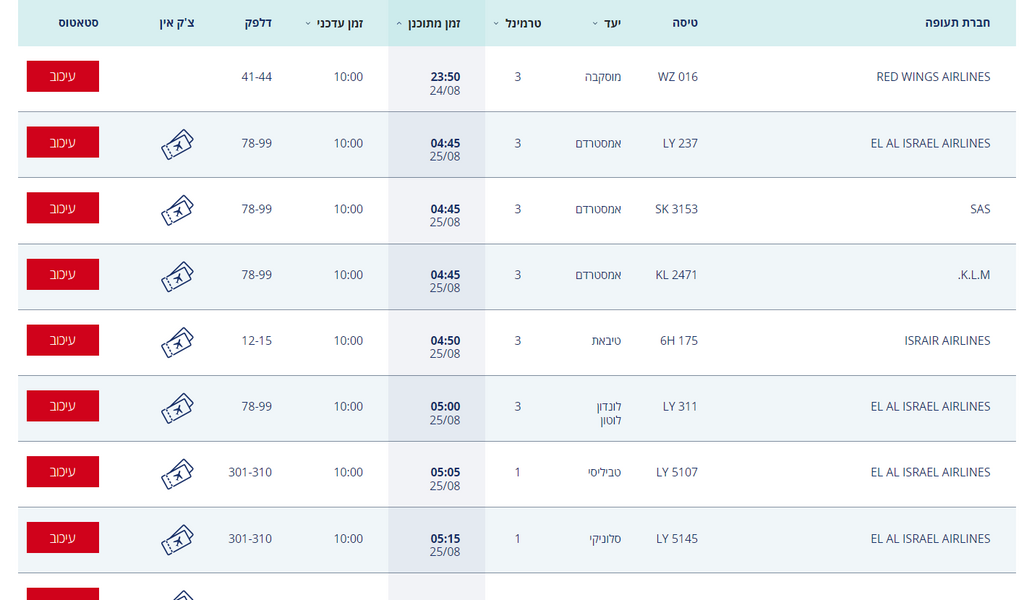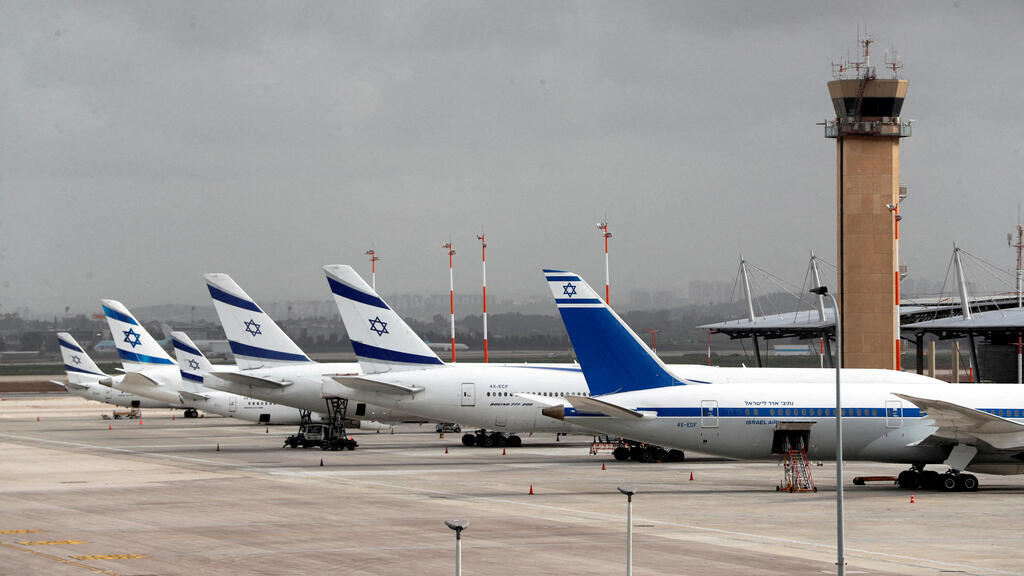Getting your Trinity Audio player ready...
Following the preventive strike in Lebanon early Sunday, the Airports Authority announced that departures from Israeli airports would not take off for the next few hours. Flights en route to Israel were directed to land in Ramon airport near Eilat and at least two landed in Cairo. The Airports Authority later announced that, following a situation assessment, that Ben-Gurion Airport began to resume operations at 7:00 a.m., including takeoffs and landings. Planes that were diverted to alternative airfields, including Ramon, too off for Ben Gurion.
At the same time, the Home Front Command announced new instructions for the Home Front, after Defense Minister Yoav Galant announced a "special situation" throughout the country. According to the instructions, which were announced by IDF spokesman, Brigadier General Daniel Hagari, from the areas of Gush Dan to the north it is possible to go to work and hold educational activities if there is a protected area nearby. Gatherings of up to 300 people are allowed.
At the same time, the IDF is conducting a joint situation assessment in the Home Front and Northern commands, the Air Force and the Defense Forces. "We will update the public in real time. We will deal with firing on the homefront and probably also with rocket falls. There are no unusual instructions for the reserves, in the coming hours we will issue additional instructions to the public," the IDF said.
In the meantime, Defense Minister Yoav Gallant announced a "special situation in the home front" for 48 hours. This directive existed in certain parts of the north and south of the country, but has now been extended to all areas of the country. "There is a high probability that an attack will occur on the civilian population in the rest of the country's territories to which the government's declaration of a special situation in the home front did not apply," the minister wrote. "The declaration on the state of emergency enables the IDF to issue instructions to the citizens of Israel, including limiting gatherings and closing sites where it may be relevant."
The IDF has been on high readiness for an attack for several weeks, and is conducting extensive collection and surveillance of Hezbollah. Overnight, movements of the terrorist organization were detected near the launch areas of short-range rockets, in addition to intelligence that supported the conclusion that this was not another daily operation by the terrorist organization and is the start of Hezbollah's response, and possibly the Iranian one as well, to the massacres that took place.
2 View gallery


Schedule of Ben-Gurion departures shows everything has been postponed
(From Ben Gurion AIrport wenbsite)
The IDF said in a statement: "The IDF identified the Hezbollah terrorist organization preparing to fire missiles and rockets toward Israeli territory. In response to these threats, the IDF is striking terror targets in Lebanon. Israeli Air Force fighter jets are currently striking targets belonging to the Hezbollah terrorist organization that posed an imminent threat to the citizens of the State of Israel. Hezbollah will soon fire rockets, and possibly missiles and UAVs, towards Israeli territory."
"From right next to the homes of Lebanese civilians in the South of Lebanon, we can see that Hezbollah is preparing to launch an extensive attack on Israel, while endangering the Lebanese civilians. We warn the civilians located in the areas where Hezbollah is operating, to move out of harm's way immediately for their own safety. Hezbollah’s ongoing aggression risks dragging the people of Lebanon, the people of Israel- and the whole region- into a wider escalation. Israel will not tolerate Hezbollah’s attacks on our civilians. We are operating in self defense from Hezbollah - and any other enemy that joins in their attacks against us- and we are ready to do everything we need to defend the people of Israel," the IDF also said.



